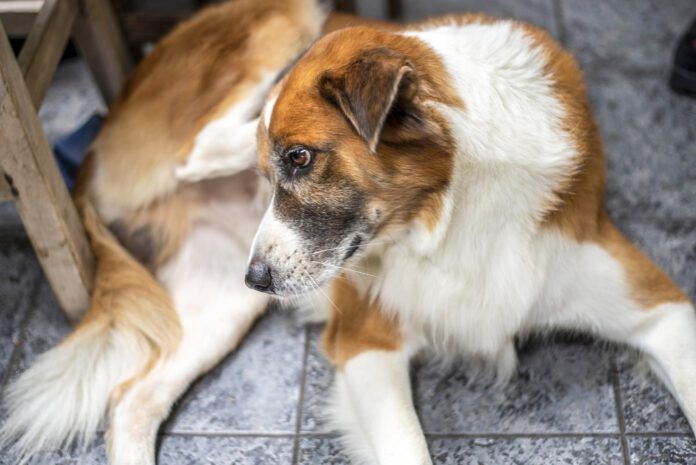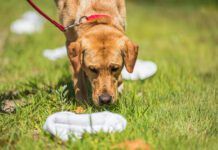Yeast infections are common in dogs. These infections are typically caused by an overgrowth of candida, a type of yeast naturally found in the body, particularly in areas like the skin, ears, and digestive tract. While yeast is present in small amounts under normal conditions, certain factors can lead to overgrowth that cause symptoms such as itchy skin, ear infections, or digestive discomfort.
Yeast thrives in warm, moist environments. In dogs, this often manifests as ear infections, dermatitis, and digestive upset. When the body’s natural balance is disturbed, yeast can proliferate uncontrollably, leading to infection. Common risk factors include weakened immune system and dietary factors. Dogs with compromised immune systems, due to underlying conditions, such as diabetes, allergies, or medications such as antibiotics or corticosteroids, are more susceptible.
Diets High in Sugar and Carbs
While there is no best dog food for yeast infections, diets high in sugar and carbohydrates can create an environment that promotes yeast overgrowth, making them the worst dog food choices for dogs prone to yeast infections.
Yeast thrives on sugar and carbohydrates, which are converted to sugar by the body. This means that a diet rich in carbohydrates, especially simple sugars and starch, can fuel yeast growth.
Many dog foods contain grains and starches like corn, oats, rice, potatoes, and sweet potatoes, all of which are high in carbohydrates. A diet rich in these components can worsen or contribute to yeast infections in dogs. Conversely, low-sugar, low-carbohydrate diets can help starve yeast and promote a healthier balance of microorganisms in your dog’s body.
Diet to Manage Dog’s Yeast Infection
Some key dietary changes you can make to manage yeast infections include opting for low-carb diets, focusing on anti-inflammatory ingredients, and incorporating probiotics into the diet. Limit carbohydrate ingredients by looking for foods that use high-quality protein sources such as lean meat and fish instead of grains and starches. These proteins are easy to digest, provide energy, and the necessary nutrients for healing.
Be sure to avoid starchy or sugary treats as well! Many treats and chews contain sugars and grains that can promote yeast growth. It’s a good idea to opt for natural, low-carb, or single ingredient treats. Remember, many grain-free foods and treats still contain high carbohydrate levels from peas and potatoes, so keep an eye out for starchy and carb-rich ingredients on the label.
Yeast Infection Treatments
Yeast infections can cause inflammation in the body, especially the skin. Anti-inflammatory ingredients like omega-3 fatty acids (found in fish oils and flaxseed), can help reduce inflammation and support skin health.
A healthy gut microbiome plays an essential role in keeping yeast levels under control. Probiotics are beneficial bacteria that help to restore balance to the microbiome. Some high-quality dog foods include probiotics, or you can add a probiotic supplement your dog’s diet to support gut and immune health.
Yeast infections in dogs are a common problem, but you can get rid of yeast infections with the right care and management. Proper veterinary care that may include some medications to start, combined with dietary adjustments, can help address the root causes of yeast overgrowth and support your dog’s recovery. By focusing on a low-sugar, anti-inflammatory diet with high-quality protein and healthy fats, you can create an environment that helps your dog’s immune system fight off yeast and help your dog live a more comfortable life.
Caption: A dog who is constantly scratching at his ears, chewing at his feet, or has inflamed skin may be battling a yeast infection. Step 1 is to see a veterinarian and gain control of the infection, then you move to Step 2, which is prevention.






